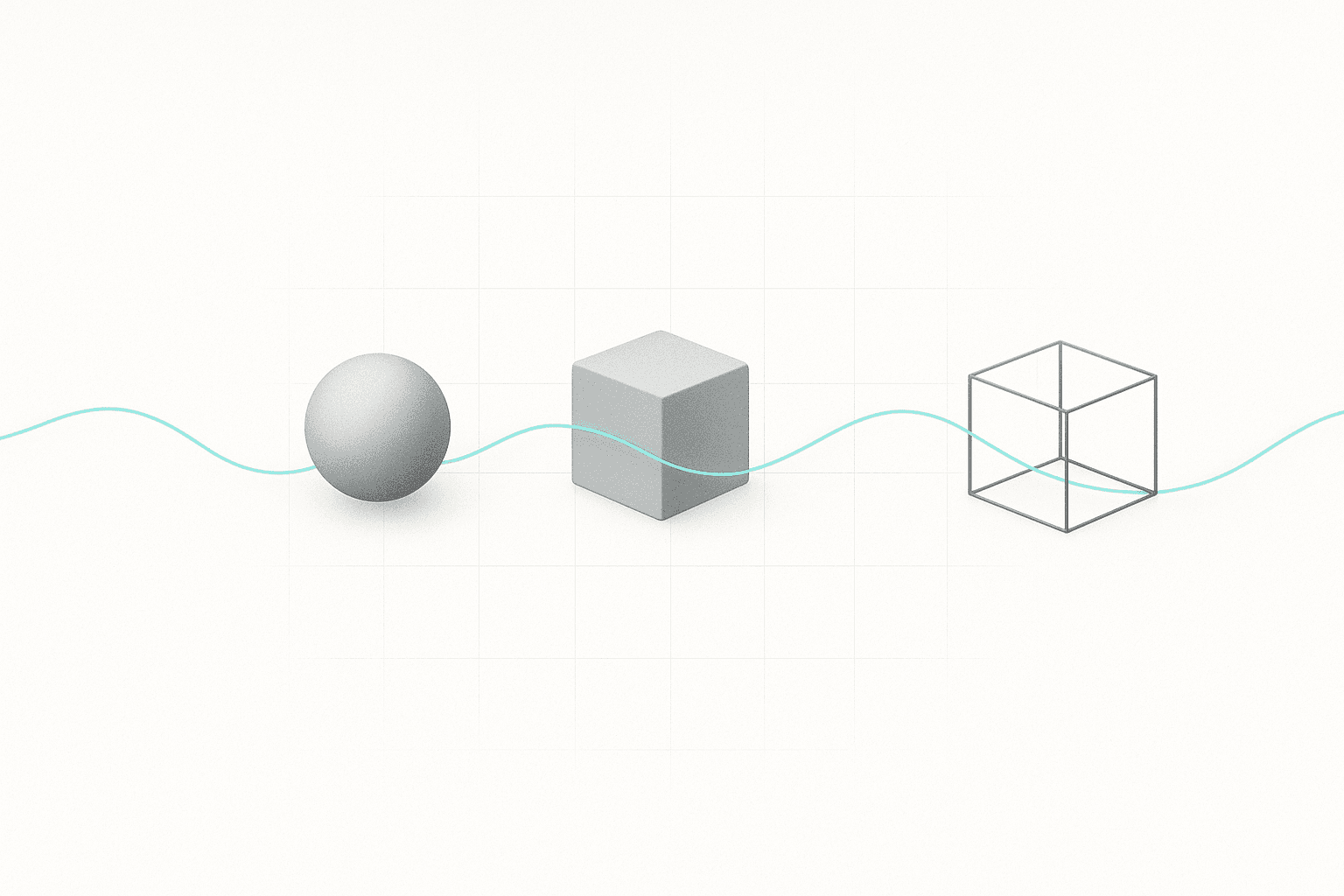7 NetSuite ERP Benefits That Transform Enterprise Ecommerce Operations
Enterprise ecommerce requires managing multi-storefront operations across B2B and B2C channels, coordinating inventory across global locations, and maintaining margins amid rising customer expectations. NetSuite ERP addresses these challenges by unifying order management, supply chain processes, and financial operations in a single platform.
NetSuite's integrated approach delivers measurable benefits: AI-powered planning and analytics, seamless multi-entity financial consolidation, and buy-anywhere fulfillment capabilities that scale with your business.
This article examines seven specific NetSuite ERP benefits for enterprise ecommerce, backed by product capabilities and industry analyst validation.
1. Eliminate Revenue Leaks with Unified Commerce Operations
Stockout-driven lost sales. Frustrated customers who can't return online purchases in-store. Inventory sitting in one warehouse while another location runs empty. These operational disconnects directly impact revenue and customer retention.
NetSuite's unified commerce platform eliminates these gaps by creating a single source of truth across every sales channel.
Through SuiteCommerce and the NetSuite Order Management System (OMS), businesses support true “buy anywhere, fulfill anywhere, return anywhere” experiences. Orders can be routed across multiple warehouses and stores, split shipments can be managed automatically, and returns can be processed in any channel with real-time visibility into stock levels.
For enterprise ecommerce brands operating globally, NetSuite OneWorld extends this capability to multiple subsidiaries, currencies, and languages—allowing finance and operations teams to consolidate performance while maintaining compliance at the local level.
Proof in Practice: What Changes in the First 90 Days
Day 1–30: A consolidated order view across ecommerce, marketplace, and in-store sales.
Day 31–60: Location-aware allocation rules for inventory, reducing manual routing.
Day 61–90: Unified returns with real-time credit/refund automation, plus consolidated financial reporting for all entities.
By removing duplicate systems and streamlining order orchestration, NetSuite gives decision-makers more accurate data and frees operations teams to scale into new markets without re-architecting their backend.
2. Cut Manual Work with AI-Driven Process Automation
Manual data entry consumes finance team capacity. Report generation delays merchandising decisions and inconsistent product content across SKUs impacts brand experience.
NetSuite's embedded AI eliminates these bottlenecks, enabling teams to focus on strategic growth initiatives.
Key AI Features
-
Text Enhance: Helps teams generate consistent, on-brand content across product descriptions, emails, HR communications, and finance notes.
-
Bill Capture: Uses advanced OCR and machine learning to extract data from invoices, reducing manual entry and minimizing AP bottlenecks.
-
Analytics Assistant: A natural language AI built into SuiteAnalytics and the NetSuite Analytics Warehouse, letting non-technical users ask questions like “What were our top-selling SKUs last quarter?” and instantly generate charts or dashboards.
-
AI in Planning & Close: NetSuite has introduced multivariate predictions and AI-powered close enhancements, giving CFOs faster forecasting and automated reconciliation support.
Why It Matters for Enterprise Ecommerce
-
Shorter cycles: Finance teams cut days from invoice processing and close periods by removing manual entry.
-
Smarter decisions: Merchandisers and planners can ask natural language questions and run “what-if” scenarios without relying on analysts.
-
Consistent content: Product, marketing, and support content stays aligned with brand tone across regions.
3. Prevent Stockouts and Reduce Excess Inventory
Multi-warehouse, multi-partner supply chains amplify planning errors into lost sales or excess carrying costs. NetSuite introduces multivariate machine learning forecasting in Planning and Budgeting, giving supply chain leaders more accurate demand projections by factoring in sales history, marketing spend, and seasonality together.
Alongside forecasting, NetSuite’s Supply Chain Control Tower provides real-time visibility into risks, supplier delays, and logistics bottlenecks so planners can simulate scenarios and adjust procurement before problems hit production.
Capabilities That Matter in Ecommerce
-
Real-time inventory visibility across warehouses, 3PL partners, and drop-ship vendors.
-
Predictive demand planning that automatically considers seasonality and promotional spikes.
-
Intelligent replenishment with purchase orders triggered when inventory thresholds are met.
-
Scenario simulation so supply chain teams can model the impact of supplier delays or cost changes before they affect customers.
Example in Context
For an ecommerce brand running a holiday campaign, NetSuite’s multivariate predictions don’t just look at last year’s sales curve. They incorporate this year’s planned ad spend, current sell-through rates, and supplier lead times. That means replenishment orders can be placed weeks earlier, keeping shelves stocked while competitors scramble to react.
4. Streamlined Order Management and Fulfillment
For enterprise ecommerce, order accuracy and speed of fulfillment directly affect conversion rates and customer retention. NetSuite’s Order Management System (OMS) is built to automate the full order lifecycle - from capture to delivery, while handling the complexities of modern ecommerce.
Key Capabilities
-
Multichannel Order Processing: Route orders across web, marketplace, and in-store channels based on inventory rules and availability.
-
Split Shipments and Drop Ship: Automatically allocate items from multiple warehouses or route directly to suppliers when needed.
-
Multi-location Sourcing: Optimize fulfillment by selecting the best location to reduce shipping costs and delivery times.
-
Exception Dashboards: Centralized monitoring with alerts for delays, payment holds, or allocation issues, so teams can resolve problems quickly.
-
Unified Returns: Customers can initiate returns or exchanges across any channel, with automated credit processing and real-time stock updates.
By consolidating these workflows into a single system, NetSuite OMS removes the friction of separate fulfillment tools and ensures ecommerce businesses can scale without increasing manual overhead.
5. Enhanced Financial Management and Compliance
For global ecommerce companies, finance teams are under pressure to consolidate results across entities, comply with evolving standards, and close the books faster without increasing headcount. NetSuite’s financial management suite continues to be a core differentiator, with enhanced planning, forecasting, and close management capabilities.
Core Financial Capabilities
-
Real-time Financial Visibility: A consolidated ledger across subsidiaries and currencies, enabling CFOs and controllers to monitor performance in real time instead of waiting for batch reports.
-
Automated Revenue Recognition: Native compliance with ASC 606 and IFRS 15, with configurable rules that allocate and recognize revenue accurately across multi-element arrangements.
-
Multi-currency and Multi-entity Support: Automated consolidation, intercompany eliminations, and localized compliance in dozens of jurisdictions through NetSuite OneWorld.
-
AI-Powered Planning & Close: Multivariate scenario modeling and AI-assisted reconciliations, helping finance teams reduce manual effort, catch discrepancies earlier, and generate forward-looking forecasts.
Why It Matters for Enterprise Ecommerce
-
Accuracy under scale: Automated recognition ensures compliance even when orders span bundles, subscriptions, and services.
-
Speed without shortcuts: AI-supported reconciliations cut repetitive work and reduce errors, allowing close processes to move faster without sacrificing audit-readiness.
-
Global confidence: Multi-entity consolidation ensures finance leaders can compare performance across geographies in real time, a requirement for brands operating across markets and currencies.
6. Personalized Customer Experience and CRM Integration
In enterprise ecommerce, the customer journey doesn’t end at checkout. Retention, repeat purchases, and lifetime value all depend on how well a brand understands and serves its buyers across every touchpoint. NetSuite’s CRM and commerce capabilities give ecommerce businesses a single, connected profile of each customer—combining purchase history, order status, service cases, and engagement data in one place.
Ecommerce-Grade Use Cases
-
Back-in-stock alerts tied to real-time inventory: Customers can be notified instantly when inventory is replenished, powered by NetSuite’s unified order and warehouse data.
-
Returns and RMA visibility: Shoppers can log into a portal and see live status updates on their return or exchange, with automated credit/refund triggers.
-
High-value customer routing: Service tickets from VIP or wholesale accounts can be automatically prioritized and routed to dedicated agents.
-
Behavior-based marketing: NetSuite’s AI-driven segmentation allows campaigns to be built from real product affinity data—e.g., “customers who buy X tend to buy Y”—and tested through NetSuite Analytics Warehouse’s AI Assistant.
Why It Matters for Enterprise Ecommerce
-
Higher repeat revenue: Proactive, personalized communication builds loyalty in markets where acquisition costs keep rising.
-
Lower churn: Transparency on returns, service, and order history reduces dissatisfaction.
-
Smarter marketing spend: AI-powered audience creation ensures campaigns reach the right segments without wasting budget.
7. Scalable Cloud Infrastructure and Global Expansion
Scaling an ecommerce business isn’t just about adding storefronts. It requires ERP infrastructure that can expand into new markets, currencies, and tax regimes without breaking operational continuity. NetSuite’s cloud-native architecture gives enterprises elastic scalability and the governance tools needed to run global commerce.
Core Capabilities for Global Expansion
-
Global Deployment: NetSuite OneWorld supports operations across 219 countries and dependent territories, with multi-currency, multi-language, and localized tax compliance.
-
Elastic Cloud Resources: Automatic scaling of compute capacity during peak events such as seasonal sales or new market launches, without additional infrastructure overhead.
-
Always-On Access: Cloud delivery ensures distributed teams can collaborate on the same real-time data, critical for global finance and operations alignment.
-
SuiteSuccess Implementation: A proven, phased methodology that accelerates go-lives and reduces risk in complex deployments.
Why It Matters for Enterprise Ecommerce
-
Confident cross-border launches: Compliance with local tax and reporting rules reduces the cost and risk of entering new markets.
-
Seamless peak handling: Infrastructure elasticity ensures flash sales, product drops, and holiday surges don’t impact customer experience.
-
Faster time-to-value: SuiteSuccess provides industry-specific best practices, letting brands scale without extended custom builds.
Conclusion
NetSuite’s momentum is backed not only by its product roadmap but also by independent analyst validation. IDC MarketScape has recognized NetSuite as a Leader for midmarket finance and accounting applications (2023–2024) for its adaptability and industry depth. In 2024, Forrester evaluated NetSuite in multiple Wave reports for service-centric and product-centric businesses, noting its flexible, modern platform.
The seven benefits outlined in this guide—unified commerce, AI-driven automation, advanced supply chain orchestration, streamlined order management, financial compliance, personalized customer experience, and global scalability—form the backbone of how leading ecommerce companies are competing in 2025.
👉 Ready to see how NetSuite ERP can accelerate your enterprise ecommerce growth?
Consult with our ERP experts at enquiry@coderapper.com and explore how these capabilities can be tailored to your business.






